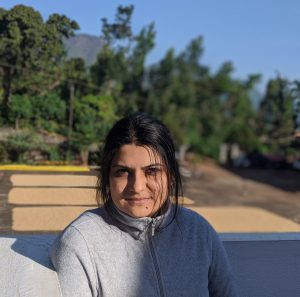Meet our new faculty member | Dr Anwesha Ghosh
March 23, 2021
We are pleased to welcome Dr Anwesha Ghosh who has recently joined NLSIU as Assistant Professor, History this term. Dr Anwesha earned her PhD in History from the University of Toronto. Trained in literary studies and history, her research offers an interdisciplinary outlook towards understanding the processes of colonial urban formation.
The University extends a warm welcome to her. We asked her to share more about herself, her academic interests and her recent work.
 Can you tell us a little bit about yourself and your background?
Can you tell us a little bit about yourself and your background?
I grew up in Calcutta and received my undergraduate and postgraduate training at Jadavpur University. As someone who loves historical studies and literature in equal measure, the only way I could have possibly studied both was by pursuing a degree in each; so I did that!
I completed my B.A in History and switched to Comparative Literature for my Masters. I did my M.Phil at the Centre for Studies in Social Sciences which anchored me even more strongly to an interdisciplinary mode of research and thinking. I pursued my doctoral studies in the Department of History at the University of Toronto and even though I came full circle having first started out as an History undergrad, my dissertation was built on relevant scholarship in the fields of Geography, Urban Studies, Law, and Anthropology, as well.
What are your main areas of teaching? How did your interest in these areas begin?
My pedagogical style is informed by the kind of attention I bring to my own research. I am a big proponent of slow and close reading and encourage students to do the same. I wrote my M.Phil dissertation on the history of bazaars in colonial Calcutta, using the establishment of the Municipal Market as a trope to highlight the hidden implications of “modernizing” colonial Indian cities.
My doctoral dissertation developed this idea further using ‘municipal governmentality’ as a methodological framework to understand how multiform technologies of urban governance introduced a system of selectively “improving” colonial cities so long it was profitable to the colonial enterprise. My work especially examines the role of municipal governance in the creation of urban landscapes of accumulation.
My teaching focuses on these issues by broadly studying the ways in which concepts like colonialism, capitalism, governance, and legality develop over the long nineteenth and early twentieth centuries.
The importance of History as a subject in your opinion.
I am offering two core courses in History at NLS. What is foundational in both these courses is the treatment of history as a method of knowing; it encourages students to understand contemporary debates and current social formations through our conceptions of the past. As law students, they also get an opportunity to understand that the legal structure they study today is part of a rich and diverse legal tradition.
In History I, we are doing a brief survey of the history of South Asian state, society, and economy from prehistorical times till the mid-twentieth century, when India achieves independence from colonial rule. History II has a smaller timeframe (mid-18th to mid-20th century) and engages with empirical sources and key historiographical debates on different aspects of colonialism.
Your thoughts on starting your teaching journey at NLS? What would be your plans ahead?
I am very excited to be part of this intellectual community. My experiences as a teacher at the University of Toronto honed my skills as a research scholar and I am hopeful my engagements with students here at NLSIU will also push me to become a better instructor and mentor. I look forward to having stimulating conversations with other members of the faculty. In the terms ahead, I am interested in offering an elective course that pays attention to the politics of infrastructure and development.

